AI is a revolution in enterprise processes, bringing automation, analytics, and personalization. Careful implementation is needed to balance efficiency with human-centric workplace values.
The AI-Powered Workplace: How Artificial Intelligence is Reshaping Business Operations
AI is changing working habits. AI can support a worker in a variety of tasks, such as talking with customers, storing data safely, etc. AI does all these things much quicker than a human could. It allows workers to save large amounts of time and energy. Nowadays, AI is being used in offices, factories, and shops to help make jobs easier and faster.
What is AI in Business?
AI is a computer program that can think and actually learn, just like a human being. In business, AI helps by taking on tasks that usually require lots of time or even focus. It can sort through huge amounts of data or predict trends based on past information.
AI is deployed into organizations for better decision-making and faster operations. It aids in finding patterns that are not visible to the human eye. In this way, AI helps companies make wiser choices and develop better services for their customers.
Ways AI is Changing Business Operations
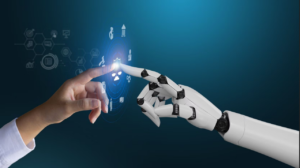
AI is influencing the way businesses run in many ways. It automates time-consuming tasks such as handling data or answering customer queries. AI also helps companies by predicting future trends or foreseeing the early signs of problems. This keeps work smoother and allows workers to focus on important projects.
Process Automation and Efficiency
AI is great for repetitive tasks. It can handle things like sorting data, sending reminders, or tracking inventory. This saves time for workers and frees up his time for more important ones.
AI also empowers businesses to achieve more speed with fewer errors. For example, a manufacturing factory may use AI to maintain all the machines at work. This contributes to increased production quality.
Improved Decision Making and Predictive Analytics
AI can analyze volumes of data faster than any human being. This aids businesses in making better decisions, such as forecasting the demand for certain products so that a company can get ready for such demand.
AI can also predict certain trends and issues in advance. It enables the company to take the actions required on time to avoid problems.
Improved Customer Relationship Management (CRM)
AI can be very useful when managing customer relationships within organizations. It keeps customer information and their likings in order. This improves the way they will treat each customer. AI might be used to auto-respond to some questions from customers. It offers quicker yet more efficient service, which is helpful if an organization has many people it has to serve.
Cybersecurity and Fraud Detection
AI helps in keeping businesses safe from cyber threats. It will track the systems and alert the companies in case of unusual activity to avert security breaches. In banking and other areas, AI can detect fraud by recognizing suspicious transactions. That will also help in saving both the company and its customers from losing money.
Human Resource and Recruitment
AI automates most of the hiring process. It can find the best candidates for a job based on their skills and experience. AI helps schedule and reminds us about interviews. It saves time for human resources staff and smooths out the process of hiring.
Personalized Marketing and Customer Experience
AI facilitates personalization, through which companies personalize their marketing. It can recommend products or services depending on customer likes and make relevant ads. AI can also make shoppers happy through recommendations. That would make them feel important, and they might want to come back more often.
Challenges and Considerations for Implementing AI in the Workplace
- Ethics and Transparency: AI makes decisions that involve and affect people. Understanding the way it reaches an inference is a key element. Companies need to be transparent and nondiscriminatory in their AI.
- Skills Gap and Workforce Training: Only some people are capable of working with AI. This slows down the trend of its adoption further. Companies may have to commit to training programs to get their employees to use AI.
- Expensive Setup, Uncertain ROI: It is also costly to set up AI machinery, and it is sometimes unclear whether it will pay off quickly.
- Integration with existing systems: AI must integrate easily with the systems that a company is already using. Companies will only be able to integrate AI tools when the technology is efficient and older. It could be time-consuming.
- Job Displacement Fears: There are fears of job loss as AI assumes some roles. Companies need to address how they can balance AI and human jobs to alleviate such concerns among their employees.
Final Thoughts
AI is making most business operations powerful, faster, smarter, and often more efficient. Starting from repetitive tasks and taking care of customer service, AI is the correct tool for many areas. Also, the advantages of using AI include some challenges. They may be data privacy guaranteeing and balancing human tasks with AI tasks.
AI has become increasingly integrated into business. A more thoughtful execution of the technology is fitting in the creation of a workplace that will benefit companies and their employees. The workplace with artificial intelligence is here to stay, and careful planning can make it positive.
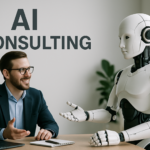







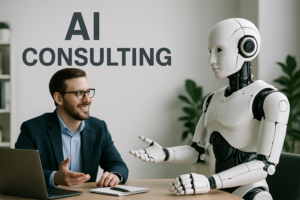



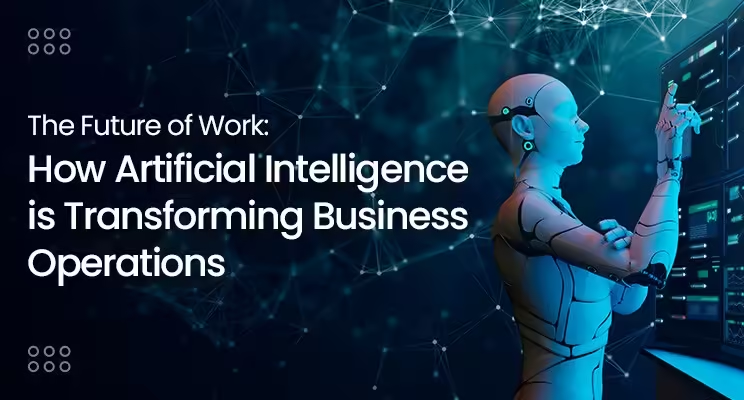
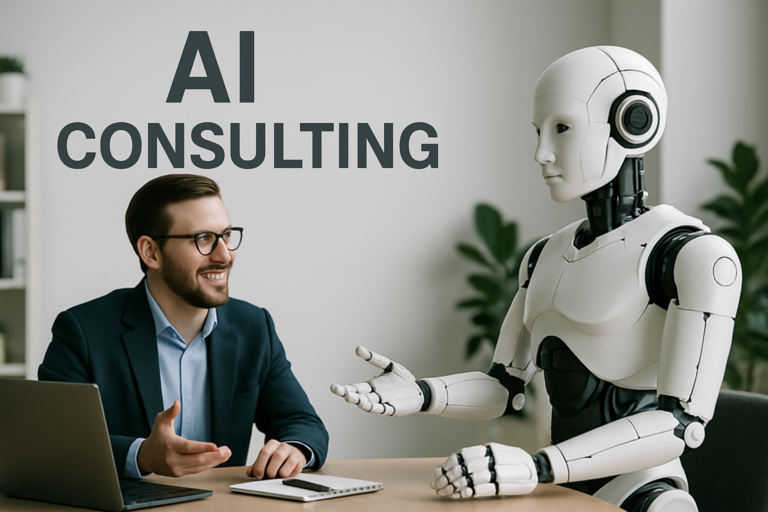





На данном ресурсе доступны последние международные политические новости. Ежедневные публикации дают возможность следить за важных событий. На сайте публикуются глобальных политических процессах. Экспертные мнения способствуют оценить происходящее. Будьте в центре событий вместе с нами.
https://justdoitnow03042025.com
Medical grade honey heals stubborn wounds. The iMedix podcast examines this ancient remedy’s modern revival. Burn specialists share remarkable case studies. Sometimes the best solutions are rediscoveries—hear more from iMedix: Your Personal Health Advisor!
Eye health requires regular check-ups and awareness of common conditions. Understanding issues like cataracts, glaucoma, or macular degeneration is important. Learning about protective measures like wearing sunglasses benefits long-term vision. Familiarity with medical preparations like eye drops for various conditions is relevant. Knowing when to seek professional eye care is crucial. Access to reliable information promotes good vision habits. The iMedix podcast covers sensory health, including vision care. It serves as an online health information podcast for holistic well-being. Listen to the iMedix online health podcast for eye health tips. iMedix provides trusted health advice for preserving sight.
На нашем портале вам предоставляется возможность наслаждаться широким ассортиментом игровых слотов.
Эти слоты славятся красочной графикой и интерактивным игровым процессом.
Каждый слот предлагает индивидуальные бонусные функции, увеличивающие шансы на выигрыш.
1win casino
Игра в игровые автоматы предназначена как новичков, так и опытных игроков.
Можно опробовать игру без ставки, и потом испытать азарт игры на реальные ставки.
Попробуйте свои силы и окунитесь в захватывающий мир слотов.
This online store offers a large assortment of home wall clocks for any space.
You can check out minimalist and classic styles to fit your home.
Each piece is carefully selected for its craftsmanship and functionality.
Whether you’re decorating a creative workspace, there’s always a beautiful clock waiting for you.
best chihai jumbo digital led wall clocks
The shop is regularly expanded with trending items.
We prioritize a smooth experience, so your order is always in safe hands.
Start your journey to timeless elegance with just a few clicks.
This website offers a large assortment of interior clock designs for any space.
You can discover urban and classic styles to complement your interior.
Each piece is curated for its visual appeal and accuracy.
Whether you’re decorating a functional kitchen, there’s always a beautiful clock waiting for you.
best blue metal bell alarm clocks
The shop is regularly renewed with new arrivals.
We focus on a smooth experience, so your order is always in professional processing.
Start your journey to timeless elegance with just a few clicks.
The digital drugstore offers an extensive variety of pharmaceuticals with competitive pricing.
Shoppers will encounter both prescription and over-the-counter remedies for all health requirements.
We work hard to offer safe and effective medications while saving you money.
Speedy and secure shipping ensures that your order is delivered promptly.
Experience the convenience of ordering medications online with us.
oral jelly kamagra 100mg
The site allows buggy rentals on Crete.
You can easily arrange a machine for travel.
If you’re looking to see natural spots, a buggy is the fun way to do it.
https://www.behance.net/buggycrete
Our rides are safe and clean and offered in custom rentals.
Using this website is simple and comes with great support.
Hit the trails and enjoy Crete in full freedom.
La nostra piattaforma offre la selezione di lavoratori per incarichi rischiosi.
I clienti possono trovare professionisti specializzati per operazioni isolate.
Ogni candidato vengono scelti con attenzione.
sonsofanarchy-italia.com
Attraverso il portale è possibile ottenere informazioni dettagliate prima di procedere.
La professionalità continua a essere un nostro valore fondamentale.
Contattateci oggi stesso per portare a termine il vostro progetto!
Лицензирование и сертификация — обязательное условие ведения бизнеса в России, обеспечивающий защиту от непрофессионалов.
Декларирование продукции требуется для подтверждения соответствия стандартам.
Для 49 видов деятельности необходимо получение лицензий.
https://ok.ru/group/70000034956977/topic/158836140980401
Игнорирование требований ведут к приостановке деятельности.
Добровольная сертификация помогает усилить конкурентоспособность бизнеса.
Своевременное оформление — залог легальной работы компании.
Хотите найти ресурсы для нумизматов ? Эта платформа предоставляет исчерпывающие материалы для изучения монет !
Здесь доступны уникальные экземпляры из разных эпох , а также антикварные предметы .
Изучите каталог с подробными описаниями и детальными снимками, чтобы найти раритет.
инвестиционные монеты купить в Москве
Для новичков или эксперт, наши статьи и руководства помогут углубить экспертизу.
Не упустите шансом приобрести эксклюзивные монеты с гарантией подлинности .
Присоединяйтесь сообщества энтузиастов и следите последних новостей в мире нумизматики.
Прямо здесь можно получить мессенджер-бот “Глаз Бога”, который найти данные о гражданине из открытых источников.
Инструмент активно ищет по номеру телефона, анализируя публичные материалы в Рунете. Благодаря ему осуществляется 5 бесплатных проверок и детальный анализ по имени.
Сервис проверен на 2025 год и поддерживает фото и видео. Глаз Бога поможет найти профили в открытых базах и покажет результаты в режиме реального времени.
найти через глаз бога
Такой бот — выбор при поиске людей через Telegram.
Этот бот способен найти данные по заданному профилю.
Достаточно ввести имя, фамилию , чтобы сформировать отчёт.
Бот сканирует публичные данные и активность в сети .
глаз бога узнать номер
Информация обновляется мгновенно с фильтрацией мусора.
Идеально подходит для проверки партнёров перед важными решениями.
Конфиденциальность и точность данных — гарантированы.
Нужно найти данные о пользователе? Наш сервис поможет полный профиль в режиме реального времени .
Используйте продвинутые инструменты для анализа цифровых следов в соцсетях .
Узнайте место работы или интересы через автоматизированный скан с верификацией результатов.
глаз бога по номеру
Система функционирует в рамках закона , используя только общедоступную информацию.
Закажите детализированную выжимку с историей аккаунтов и графиками активности .
Доверьтесь надежному помощнику для digital-расследований — результаты вас удивят !
Нужно найти данные о человеке ? Наш сервис предоставит полный профиль мгновенно.
Используйте продвинутые инструменты для поиска цифровых следов в открытых источниках.
Выясните контактные данные или активность через автоматизированный скан с верификацией результатов.
глаз бога бесплатно
Бот работает с соблюдением GDPR, используя только общедоступную информацию.
Закажите расширенный отчет с геолокационными метками и списком связей.
Попробуйте надежному помощнику для digital-расследований — точность гарантирована!
Нужно найти информацию о человеке ? Этот бот поможет детальный отчет мгновенно.
Используйте продвинутые инструменты для поиска публичных записей в открытых источниках.
Выясните контактные данные или активность через систему мониторинга с гарантией точности .
глаз бога телеграмм бот бесплатно
Бот работает с соблюдением GDPR, используя только общедоступную информацию.
Получите расширенный отчет с геолокационными метками и графиками активности .
Попробуйте проверенному решению для исследований — точность гарантирована!
Can you be more specific about the content of your article? After reading it, I still have some doubts. Hope you can help me.
Hello, dedicated seekers of ultimate body harmony! I once got trapped in the enchanting echo of quick-fix wellness wonders, holding onto them tightly whenever wellness warnings echoed. However, vital insights burst through, highlighting how such temporary shields risked deeper health decay, fueling a passionate pursuit for the pillars of sustainable mental and bodily health. This awakening pulsed with life-affirming energy, validating how wise, health-empowering practices boost holistic recovery and preventive power, rather than jeopardizing our health equilibrium.
In the heart of a health crisis, I ignited a personal health transformation, exploring groundbreaking health frontiers that fuse restorative habits with cutting-edge preventive medicine. Get set for the wellness-wowing centerpiece: kamagra online, where on the iMedix podcast we explore its profound impacts on health with transformative tips that’ll inspire you to tune in now and revitalize your life. This health revelation reconstructed my foundation: well-being flourishes through integrated body-mind harmony, while reckless health shortcuts compromise immunity. Today, I’m energized by this health mission to guide you toward empowered health evolution, celebrating health tools as enhancers of vibrant living.
Delving into health’s deepest layers, I’ve discovered the vital key that health interventions must nurture and fortify, free from overshadowing personal health control. This health odyssey overflowed with empowering moments, encouraging you to rethink ingrained wellness routines for authentic, thriving well-being. And the health hook that pulls you deeper: balance.